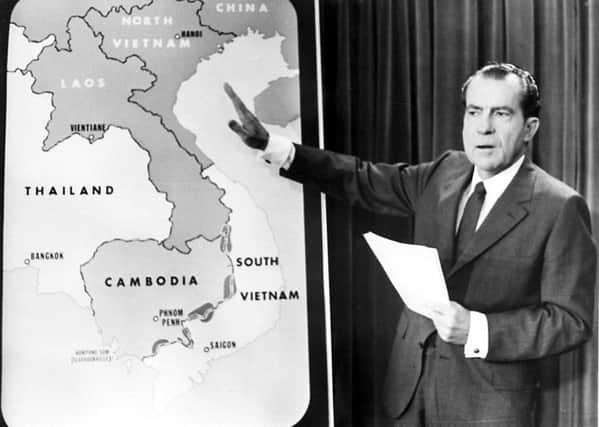Democracy in peril as the world spins out of control


Eight years on, with the inauguration of Donald Trump, that hope has been replaced by apprehension and downright fear. Many of us are now blaming ourselves for leaving a legacy of a dangerous and uncertain world to the next generations. How has America, and the wider democratic world, come to feel this way? Where has Obama’s “audacious hope” gone?
To live at ease in any governmental system it is necessary to have faith that those in political power know what they are doing. We are entitled to expect calm, competence and leadership from those who run the country – that’s what we pay them for. But in Western democracies, the destructive modern relationship between the media and the political parties has led to us having leaders who have none of these qualities.
Advertisement
Hide AdAdvertisement
Hide AdThis goes back to the election of Richard Nixon as US president. In The Selling of the President Joe McGinnis, an employee of a Madison Avenue advertising agency, explains how his firm fulfilled the brief from Nixon’s backers to repackage and then successfully sell “Tricky Dicky”. The secret was to present merely an image, an impression of the political candidate. The advertising agency showed that declared policies were problematic, as they would alienate some voters. So only meaningless platitudes were required. Political principles were ditched.
Now all successful political parties in democracies are run on the same premise: politicians are best presented to the public in the same way as soap powders. The task of the party’s spin doctors is to obtain support, or at least avoid criticism from, the media. This questionable function is now seen by politicians as vital.
When in government, they purloin huge amounts of money from the public purse to pay these creatures. The title “special adviser” denotes a journalist whom your taxes are paying for, and whose task is to ensure that you, the voter, never know the whole truth.
Self-interest, lack of morality and willingness to participate in the creation of illusions for electors requires a particular sort of politician. Essentially, an unthinking, immoral creep. Worldwide, voters are starting to see through all this. They are rejecting our “no principles” politicians.
Sadly, following on the success of New Labour, Scotland is saddled with the final product of this denigration of democratic government, the SNP. Concentrating entirely on party politics, and taking on virtually nothing to do with the task of governing, essentially our SNP Government comprises stooges, parroting whatever lines their spin doctors give them.
Historically, Scotland was never a democratic country. Maybe having unthinking, obedient little lobby fodder politicians is true to our Caledonian traditions. But is it really too late for Scotland to try true democracy?
That way lies hope.
l Alistair Bonnington is former in-house counsel to BBC Scotland